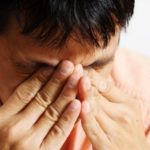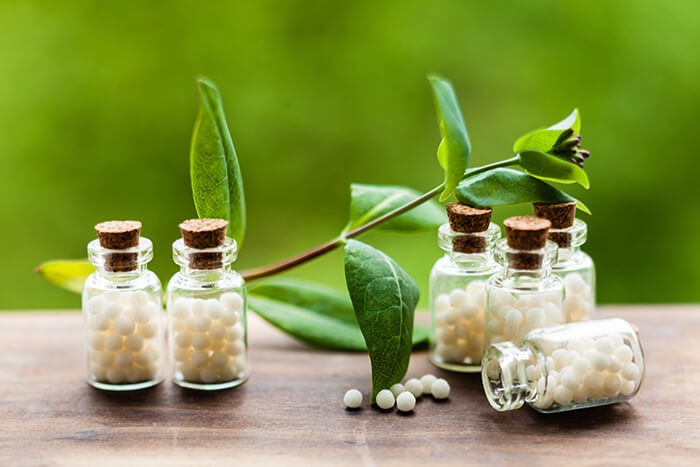
Psoriasis is a skin condition that causes flaky skin patches to form scales. On brown, black and white skin, the patches can look pink or red, and the scales white or silvery. The patches on brown and black skin can also look purple or dark brown, and the scales may look grey.
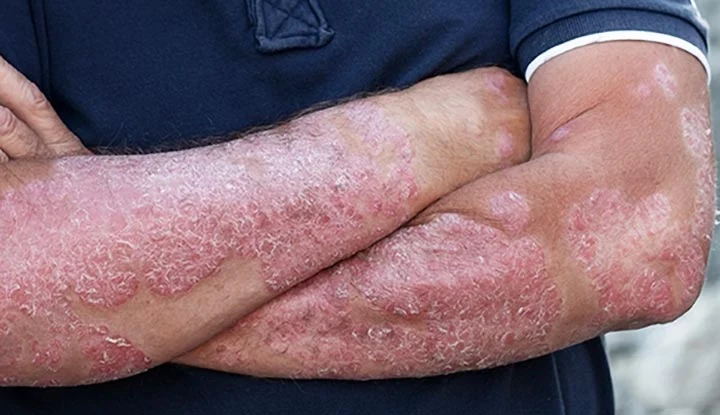
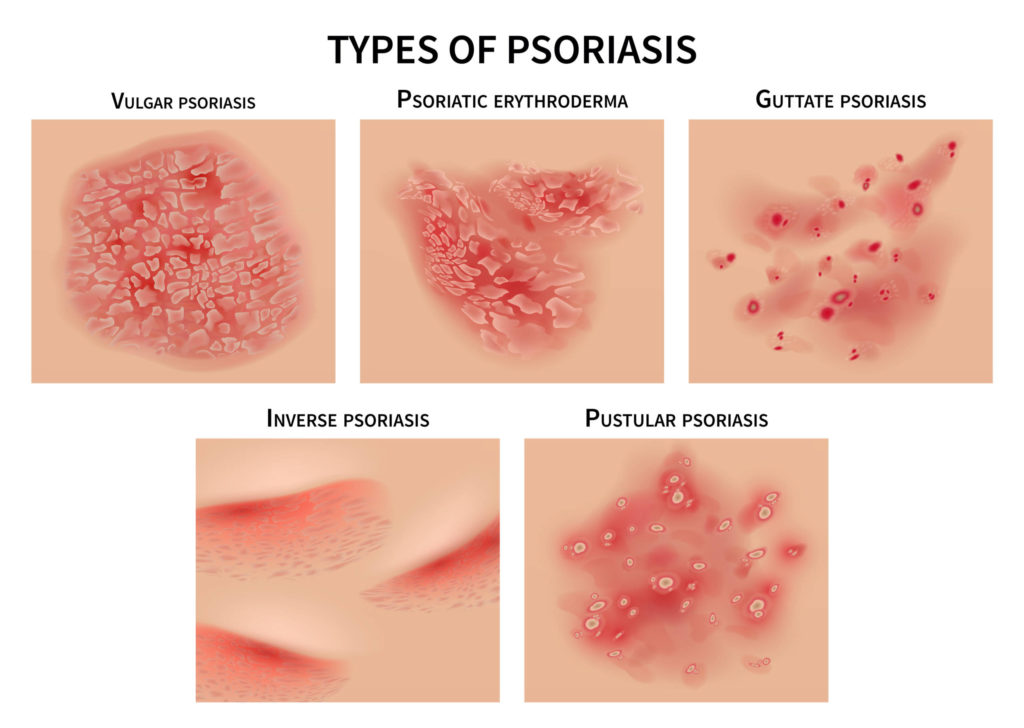
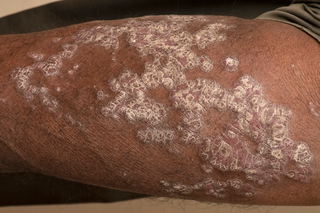
These patches typically appear on your elbows, knees, scalp and lower back but can appear anywhere on the body. Most people are only affected by small patches. However, in some cases, the patches can be itchy or sore.
Psoriasis affects around 2 in 100 people. It can start at any age but most often develops in adults between 20 and 30 years old and between 50 and 60 years old. It affects people of all gendre equally.
The severity of psoriasis varies greatly from person to person. For some, it’s just a minor irritation, but for others, it can significantly impact their quality of life.
Psoriasis is a long-lasting (chronic) disease. It usually involves periods when you have no symptoms or mild symptoms, followed by periods when symptoms are more severe.
People with psoriasis have increased production of skin cells. Skin cells are typically made and replaced every 3 to 4 weeks, but in psoriasis, this process only takes about 3 to 7 days.
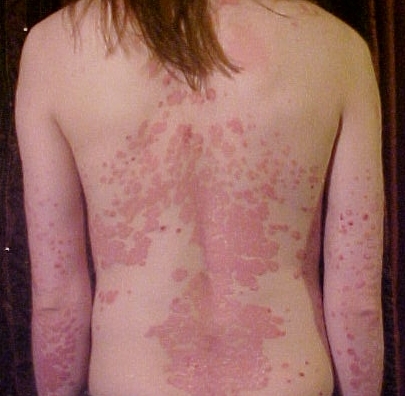
The resulting build-up of skin cells creates the patches associated with psoriasis. Although the process is not fully understood, it’s thought to be related to a problem with the immune system.
The immune system is your body’s defence against disease and infection. Still, it attacks healthy skin cells by mistake in people with psoriasis. Psoriasis can run in families, although genetics’ exact role in causing psoriasis is unclear.
Many people with psoriasis symptoms start or become worse because of a particular event known as a trigger. Possible psoriasis triggers include an injury to your skin, throat infections and using certain medicines.
The condition is not contagious, so it cannot be spread from person to person. There’s no cure for psoriasis, but a range of treatments can improve symptoms and the appearance of skin patches.
If these are ineffective, or your condition is more severe, a treatment called phototherapy may be used. Phototherapy involves exposing your skin to certain types of ultraviolet light.
These are all costly treatments with no positive results guaranteed. However, the medication available at Maira Sharif has outperformed most treatments available in the market in treating various types of psoriasis cases. Patients reported a great deal of improvement in their condition, itchiness, and a reduction in red scalps.
This formula is passed down from generation to generation to the head of the family known as the Sajjadah Nasheen (Pir). It is formed from many herbs, and rare vegetation scrutinized for originality. This medication has been perfected over generations.

Until the publication of this article on Maira Sharif’s official website, none of the medications have ever been advertised or commercialised to make money. The people who benefitted from these medications spread the word to their friends and family. For the greater good of the people, it has now been decided to harness social media to spread the word to save people suffering from spending fortunes without any benefit.
